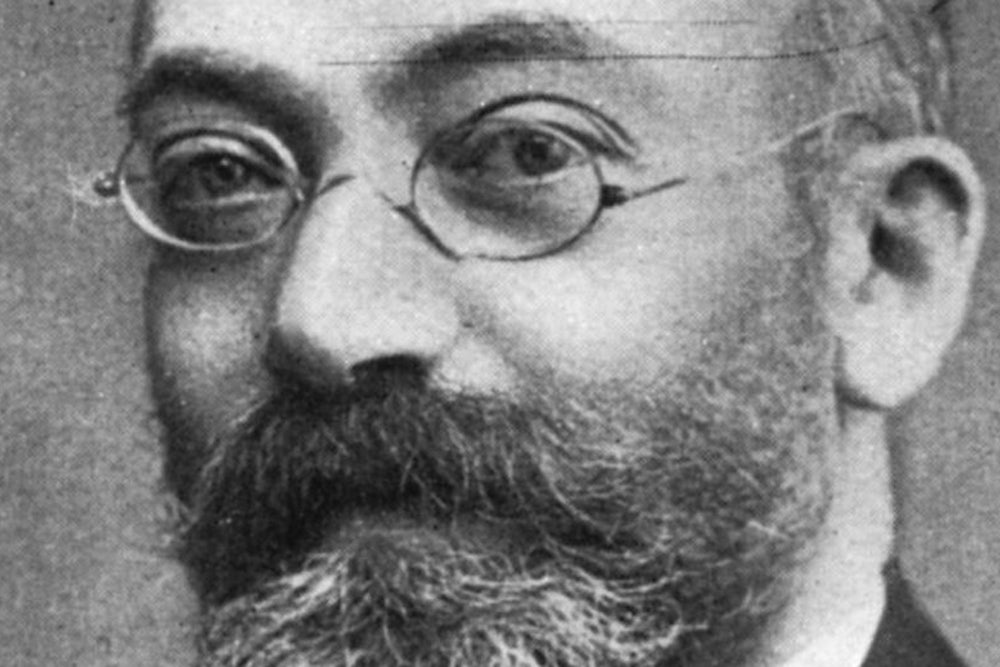At two and a half years old, Gabriel Nacu can already boast an unusual skill. He’s beginning to string together full sentences in Esperanto, the language invented in the nineteenth century by the Polish physician Ludwik Lazarus Zamenhof. Gabriel—known as “Gabrielo” in Esperanto—and his baby sister, Keaton—or “Kinjo”—are being raised by their father in the artificial language Zamenhof hoped would one day undermine national boundaries and beget world peace. Today, Esperanto speakers tend to be less utopian. “It’s a social thing as much as anything,” says Graeme Wood, a multilingual journalist who sometimes attends Esperanto meet-ups in Washington, DC. Esperanto speakers often gather at international conventions as well as local study groups, and have created their own private couch-surfing network, “Pasporto Servo,” allowing Esperantists to travel the world for free. “You can meet people and speak Esperanto, and they’ll show you around their city or their country,” says Nacu.
It’s estimated that between 100,000 and two million people worldwide speak Esperanto, but it's thought that there are only a handful of children who can call Esperanto a native language. I spoke with Gabriel’s father, Gregory—a software developer in Toronto who signs emails “Gregorio”—about why he’s raising his kids in a made-up language, what he hopes they’ll gain, and why you don’t want to be the Green Pope at the Esperanto conference.
Alice Robb: Is there a typical Esperantist?
Gregory Nacu: It’s very diverse. I was kind of surprised; I thought people would have more of an idealistic streak. The original mission of the founder of Esperanto was to have everybody learn it and change the face of politics. Most people don’t think that way anymore.
AR: Is there any tension between people who are learning Esperanto for political reasons as opposed to travel opportunities?
GN: People sometimes say, “Don’t be a ‘Green Pope.’” The Esperanto flag is green, with a green star on it; a Green Pope is someone who kind of religiously pushes Esperanto, someone who’s really in-your-face about it. They try to recruit people, that kind of thing.
AR: Why did you decide to learn Esperanto?
GN: My father speaks three languages and he didn’t teach anything but English to us. Later in life, I found it very difficult to learn French. I was looking for an easier way to learn a language. I used a website called lernu.net, which is sort of a portal for teaching people Esperanto. They’ve got exams and lessons, puzzles, games, forums. I learned to speak it in about six months.
AR: What have you gained from knowing Esperanto?
GN: If you learn French, say, there are certain immediate benefits, like you can work in the Canadian government. You’re not going to have that kind of benefit with Esperanto. But as a language and a tool for your mind, it’s phenomenal. I feel as though my understanding of English—which is my native language—has gone up dramatically since learning a second language. So after a relatively short investment of time, I feel like I gained these very deep insights into the way language functions. It’s improved my understanding of English, and it’s also dramatically improved my understanding of French, which I continue to study.
I’ve travelled to a few countries using Esperanto. I did a tour of Slovakia and the Czech Republic with a group of Esperantists. And I went to Cuba for an Esperanto youth conference. There are lots of regular events that happen all over, conferences that move from place to place.
AR: What are these Esperanto conventions like?
GN: When you go to any kind of Esperanto gathering, there’s a strong social pressure not to speak other languages. You can have this moment where you think, “I’m struggling to express myself, and the person in front of me speaks English, and I speak English. I could just say use English and they would get it immediately.” But there’s a very strong social disincentive to do that. There’s a word, “to crocodile,” which means, “to speak your native language in the presence of other esperantists.” You’ll hear people say all the time, “Ne krokodilu.”
There’s an event every year around Columbus Day, at a retreat center in the Adirondacks. I took my kids to that last year, and it was great. It was the first time they ever saw me interacting with other Esperantists. I think my son had got the idea that I’m the only one who speaks it.
AR: So there is a culture of Esperanto? Is it more than just a language?
GN: For sure. It’s got its own original literature, its own original poetry. It’s got its own idioms and things that don’t translate into other languages.
AR: How have your friends and family reacted to your decision to speak to your children in Esperanto?
GN: When I speak it to my kids, there’s kind of this confused reaction. Most people are nominally supportive. They think it’s probably intellectually good. But some people think that if you teach your child multiple languages, it will hamper their ability to learn their native language. But I don’t think there’s any evidence that that’s true.
My wife has learned a huge number of words totally passively. She’s never actually studied Esperanto, but she understands the majority of what I’m saying to my son. She also will say short phrases to him in Esperanto.
This interview has been edited and condensed.
